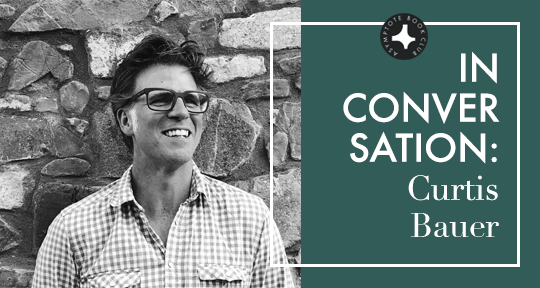Our November book club selection, Franco Morábito’s award-winning Home Reading Service, is a fast-paced tour de force rife with twists and turns. It seems fitting, then, that its discussion should touch upon various forms of change and movement. In the following abridged interview, Editor-at-Large Josefina Massot and translator Curtis Bauer talk about the possible shifts within an author’s oeuvre, the back-and-forths between translation drafts, the significance of a character’s subtle motions, travel’s impact on a poet’s work, and movement as great poetry’s defining trait—understood, among other things, as its ability to move us.
The Asymptote Book Club aspires to bring the best in translated fiction every month to readers around the world. You can sign up to receive next month’s selection on our website for as little as USD15 per book; once you’re a member, join our Facebook group for exclusive book club discussions and receive invitations to our members-only Zoom interviews with the author or the translator of each title.
Josefina Massot (JM): I read somewhere that you discovered Morábito’s work through El idioma materno (2014), a collection of short pieces that he originally wrote for Argentine newspaper Clarín. You said you found it different from anything you’d encountered before; that it instantly struck you as something you wanted to engage with. What was your first reaction to El lector a domicilio? Did it seem to follow some kind of line relative to Morábito’s prior work, or was it fundamentally different?
Curtis Bauer (CB): It’s a great question—thinking about the movement an author can have across different kinds of work. I immediately loved El lector a domicilio, and I found it very “Morábito-like” in that I didn’t know what to expect but when it happened, it somehow made sense. What I love about his work, whether it’s the short prose pieces or stories or this novel, is that (and I believe you wrote about this in your review) the characters are just average, run-of-the-mill people that don’t seem to have such interesting lives—but of course they do. Morábito finds that aspect to them, or rather, he exposes it; he shows us that we’re surrounded by interesting things taking place all the time.
JM: I think that’s a good point, and for me, it’s one of the most appealing aspects of the book; the other is that it’s very much centered around poetry—there’s Fraire’s poem (which you did a stunning job of translating), a very whimsical piece by Gianni Rodari, and in between the two, all this varied prose. Given that you’re a poet yourself, and that you’ve translated both genres before, what was it like dealing with the two within the scope of a single work? Did you find that you shifted from one headspace to the other? Or was the translation process overarchingly similar?
CB: I wish! The Fraire poem seemed to change throughout the book, because it appears in different sections. I gave myself this framework or “rule” where I couldn’t go back and look at what I had translated previously, so I just tried to translate from memory as I was moving through the drafts. With each draft, it would change, and when I’d go back and look at the beginning of the book, I’d question my choices.
I started out translating poetry, and I still do, but it was the hardest part about translating this book. It does indeed require a different headspace for me, a different pace or breath, although I also recognize some similarities in how I translate the prose: I’m listening to the rhythm of the sentence, and I think about repetitions of sounds and other issues that a poet naturally takes into account. At any rate, yes, the Fraire poem was the most difficult part overall; I was making little tweaks to it up until the last edit, and I’m really thankful to my editor at Other Press for allowing me to do that.
As for the Rodari, it’s actually different in the Spanish original. I think I may have translated it directly from the Italian, because Morábito truncates it in the Spanish. In the novel, Eduardo talks about certain parts of the poem, certain rhymes, with the Vigil children; he has them moving their feet to the rhythm, and I didn’t think it was enough to have these seemingly deaf kids reacting to just a few fragments. Initially I was focusing only on preserving the poem’s meter, but my partner is a linguist and insisted that I do the end rhyme as well. So even though it’s more playful than the Fraire poem, it was equally as difficult to translate.

